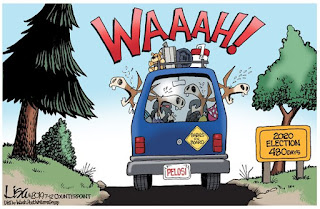In
2008 I was invited to a conference called Australia Recycles! in
Fremantle. I flew coach for 30 hours (we had to divert, at one point, to
Auckland instead of Sydney because huge headwinds used up more fuel
than expected) and landed in Perth and then was driven to Freo by one of
the conference organizers. (If you are keeping score at home, that’s 2.78 metric tons of carbon for the flight from Raleigh-Durham to Perth and back.)
It
became clear that I was the “tethered goat,” brought in for
entertainment and to spice things up a bit. Apparently, someone had
listened to my April 2007 conversation with Russ Roberts;
that’s pretty impressive, because this was just over a year after
EconTalk started, before EconTalk was a “thing” and before Russ started
ignoring my emails and not returning my phone calls.
I
had a day before my plenary address, and walked around the conference
hall. Everyone there, everyone, represented either a municipal or
provincial government, or a nonprofit recycling advocacy group, or a
company that manufactured and sold complicated and expensive recycling
equipment.
And
what a wealth of machinery and equipment it was. Recycling requires
substantial infrastructure for pickup, transportation, sorting,
cleaning, and processing. I have sometimes suggested a test for whether
something is garbage or a valuable commodity. Hold it in your hand, or
hold a cup of it, or tank, or however you can handle it. Consider: Will
someone pay me for this? If the answer is yes, it’s a commodity, a
valuable resource. If the answer is no, meaning you have to pay them to
take it, then it’s garbage.
It’s useful to pause for a moment and consider some definitions.
Is Recycling Useful, or Is It Garbage?
The problem with recycling is that people can’t decide which of two things is really going on.
-
One possibility is that recycling transforms garbage into a commodity. If that’s true, then the price of pickup, transport, sorting, cleaning, and processing can be paid out of the proceeds, with something left over. That’s how it is with real commodities, such as wheat or pork bellies, after all. It’s expensive and complicated to produce wheat or pork bellies, and then deliver them to the market in a form that they can be used. But people will pay you for the wheat or pork bellies. In fact, the “profit test” shows that people will pay you enough to cover all those costs and still have something left over.
-
The other possibility, and it’s a completely different possibility, is that recycling isn’t a commodity at all. But it is a cheaper or more environmentally friendly way to dispose of garbage. After all, if you bury something in a landfill, it’s gone. And you still had to collect it, transport it, and process it into the landfill. Recycling might cost money, but if you can sell the stuff for any price you are getting some of those costs back. Further, recycling keeps things out of landfills, and we systematically underprice landfill space. The reason is that we don’t want people dumping garbage in vacant lots or by the side of the road. But that means that recycling may be cheaper, all things considered, than using the space in the landfill. The problem is that “all things considered.” You really do have to add up all the costs — resources, money, convenience, environmental damage — of landfilling, and recycling, and then compare them.
These
arguments are often muddled and mixed together, by both proponents and
critics. And “recycling” is, after all, not just one homogeneous
activity, but a whole collection of possible streams of waste or
resources, each of which has to be evaluated separately. Should we
recycle aluminum cans? Probably, because the price of recycling aluminum
compares very favorably to using virgin materials, the mining and
smelting of which are expensive in terms of energy and harmful to the
environment.
Should
we recycle toilet paper? We could, at some price. But it’s likely not
worth it, because it can be composted, it would be awfully hard to clean
and sort, and in any case paper products are actually a renewable
resource, rather like wheat. You rarely hear someone saying, “Save the
wheat! Give up bread!” But that kind of argument is often made for
paper, even though the trees grown to produce pulp are simply a
fast-growing crop grown on farms expressly for that purpose.
For
recycling to be a socially commendable activity, it has to pass one of
two tests: the profit test, or the net environmental-savings test. If
something passes the profit test, it’s likely already being done. People
are already recycling gold or other commodities from the waste stream,
if the costs of doing so are less than the amount for which the resource
can be sold.
Voluntary
“recycling” like scrap iron or aluminum businesses will take care of
that on their own. The real question arises with mandatory recycling
programs – people recycle because they will be fined if they don’t, not because they expect to make money – or
“voluntary” recycling programs such as those at universities or other
communities where failure to recycle earns you public shaming.
Read the rest:
For Most Things, Recycling Harms the Environment | Intellectual Takeout


















































